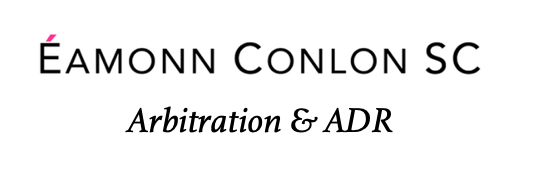preventing | resolving | winning
business disputes

‘I was never ruined but twice, once when I lost a lawsuit, once when I won one.’ Voltaire
We are not a “settling firm,” said the litigation hiring partner of a big American law firm to me many years ago in a job interview. That firm no longer exists. This mindset — fight every case to the bitterest of ends — is common, but foolish or worse.
As everyone knows, litigation is expensive, risky, and wasteful. It damages business relationships, nearly always beyond repair. It dominates the lives of the people who get caught up in it, putting them under immense personal stress. Few are happy with the outcome. Not even the winner.
Litigation is often said to be a zero sum game. It’s worse than that. The outcome for both players nearly always adds up to much less then zero.
All this applies to arbitration too.
HOW CAN I HELP?
Benjamin Franklin’s adage that an ounce of prevention is worth a pound of cure has outlived the imperial age. Many disputes could have been prevented by paying close attention to risk early: when setting up a contract or business relationship, and as it progresses
I help clients identify, allocate (or share), and manage risk in new and ongoing contracts and business relationships.
At the outset
Contracts can help prevent disputes by dealing with risk clearly and sustainably, and including tools to track and manage them.
If you have carefully considered the risks and agreed on how they are to be dealt with and managed, and some of those risks materialise, that should not mean a dispute. Conversely, if a risk materialises and parties have different understandings of what they agreed about it, or didn’t agree anything, a dispute is nearly inevitable.
I help clients making contracts —
- to identify the most material risks — areas of uncertainty that could interfere with their objectives being realised
- to agree how these risks are to be dealt with, and make that agreement as clear as possible.
- to consider whether the arrangements for allocation or sharing of risk is sustainable. For example, have risks been allocated to a party who doesn’t have the resources to carry them? If so, will those risks come back to the other party?
- to agree tools and techniques for tracking risks, managing them if they materialise, and agreeing when they have passed. This can facilitate collaborative efforts to reduce risk for the benefit of both parties, without changing the risk allocation agreed in the contract. This is an effective dispute prevention technique.
Ongoing advice
- to identify risks and potential disputes
- to evaluate their strengths and weaknesses in actual and potential disputes
- to find creative ways to navigate around disputes, reducing risk
- to position themselves to improve the prospect of winning if a dispute cannot be prevented.
In addition to serving as neutral, I give independent advice to clients facing disputes, for example on—
- assessing risk, evaluating strengths and weakness
- alternative ways to achieve business objectives
- creative ways to resolve disputes by agreement or more efficient proceedings.
Strategy
In parallel with advising clients on preventing and resolving disputes, I also advise on strategies to win the disputes that can’t be prevented or resolved. It is vital to keep both eyes fixed on two things at the same time: bringing the dispute to an end in the best way, and winning if it has to be fought to the end. The strategies must be aligned. That requires agility.
Some find this too hard, leading to paralysis and an inevitable dispute. But it is my experience that carefully considered dispute prevention and resolution measures rarely harm the position of the party taking them, and frequently improve it.
Arbitration and ADR advocacy
- prepare: work closely with the team (client, expert, legal) to develop themes and strategy, starting as early as possible
- simplify: focus on the most important aspects of the case
- clarify: present the written and oral case in a way that is clear, crisp, easy to understand.
